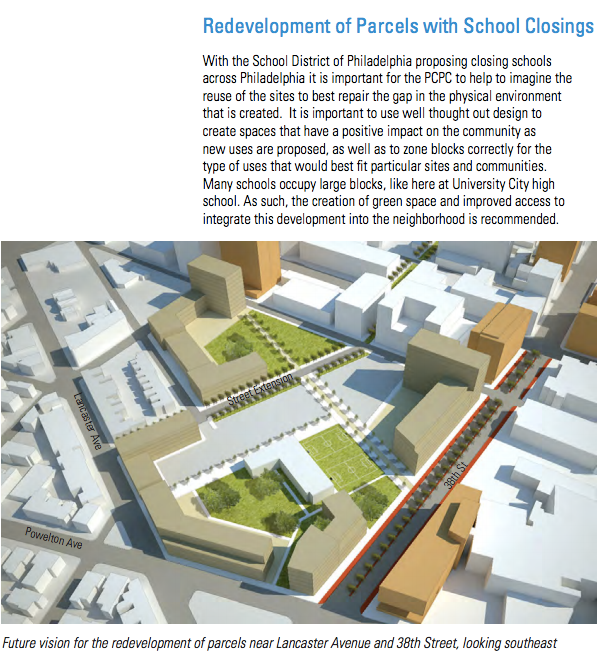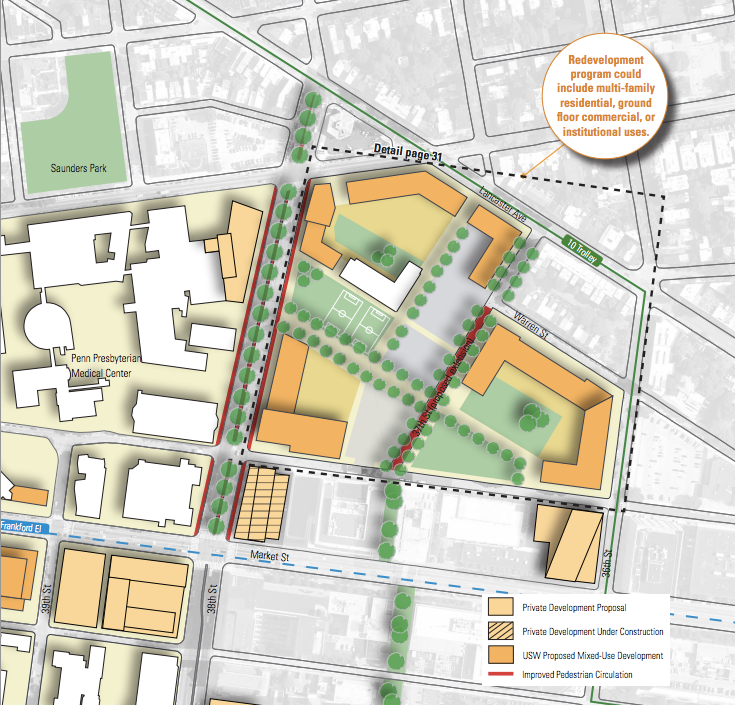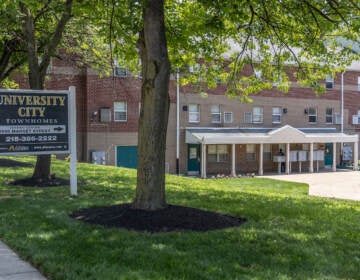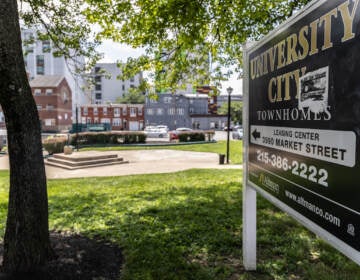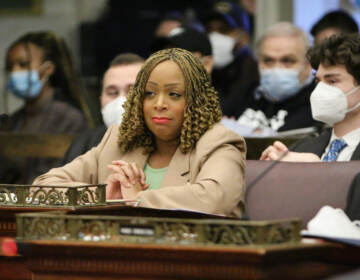On planning, realpolitik, and selling closed schools

During the last week negotiations over the sale of the 14-acre University City High/Drew Elementary school property to Drexel University and its development partner Wexford Science + Technology have exposed serious faults in the process of rapid-fire school sales, particularly for the most desirable sites.
In her column today Inga Saffron writes that the fevered cries to “sell, sell, sell” closed schools should be joined by “plan, plan, plan.” She’s right. That’s what many have wanted for more than a year.
Some planning has already happened, particularly around the prime University City site. For the last year planners and community members have been talking about the process for selling off closed schools, developing urban design and use suggestions for this property and others. The trouble is these efforts seem to have fallen on deaf ears as City Council and the Nutter Administration faced off over their versions of the school sale process and timeline, rushed in light of the School District’s deep financial emergencies.
Since last spring a PennDesign planning studio released a school closings plan, the University/Southwest District Plan included some guidance for the University High/Drew site, and this spring community held its own public conversation about desires for that site’s future.
Let’s review:
Last spring PennDesign students developed a model for managing closed school buildings. As our Jared Brey reported then:
The report produced by the students suggests a comprehensive public process for selling, adapting, or otherwise disposing of the closing schools, which sit in varying physical conditions and in vastly different neighborhoods across the city. According to Deputy Mayor Alan Greenberger, who attended a recent presentation of the students’ report, their suggestions closely mirror the city’s own preliminary thinking about how to implement a school disposition and reuse plan. His office is currently working with the School District on an adaptive reuse plan for the closed school properties, though neither Greenberger nor representatives of the District offered specifics about what that plan entails.
The studio report lays out a fairly tight timeline to find buyers, tenants, or civic reuses for the closing schools—before the end of Mayor Michael Nutter’s tenure in 2015. It suggests the immediate formulation of a School Reuse Task Force, composed of the office of the Deputy Mayor for Planning and Economic Development (Alan Greenberger), the city’s Chief Education Officer (Lori Shorr), and the Philadelphia School District’s Department of Real Property Management.
A task force staff would begin conducting market research and community engagement this summer, with the intention of giving residents of neighborhoods with closed schools a way to participate meaningfully in the disposition and reuse process.
The Nutter administration had its own plan for selling recently-closed schools, which included civic engagement about the site’s future. City Council’s alternative plan for school sales called for community engagement about less marketable sites. So far neighbors have gotten public meetings about the sale process, but not ones designed for meaningful feedback on future uses or public impact. Public input meetings on school sales to be hosted by the Penn Project for Civic Engagement this spring were canceled without explanation.
After the February meeting revealing Drexel as the prospective buyer West Philly Local reported that officials promised that the project would be the subject of future community meetings and the zoning process. But City Council is taking zoning into its own hands, and is expected to pass legislation on Thursday that provides more generous base zoning for the University City site. The future development will, at the very least, be subject to Civic Design Review due to its scale.
The Planning Commission included the University City High site in its University/Southwest District Plan [pdf] with clear language about public priorities for zoning. The plan, adopted last June, stated:
With the School District of Philadelphia proposing closing schools across Philadelphia it is important for the PCPC to help to imagine the reuse of the sites to best repair the gap in the physical environment that is created. It is important to use well thought out design to create spaces that have a positive impact on the community as new uses are proposed, as well as to zone blocks correctly for the type of uses that would best fit particular sites and communities. Many schools occupy large blocks, like here at University City high school. As such, the creation of green space and improved access to integrate this development into the neighborhood is recommended.
With the rush to sell this large and attractive site, PCPC has not yet been able to work with developers or the community on a shared vision for the site that enables Drexel’s development, builds shared neighborhood assets, and an urban design that is a graceful transition linking the universities and Science Center to adjacent low-rise neighborhoods. There is still room to discuss these issues.
As Drexel’s future development of the site felt like a done deal community members started to feel shut out of the discussion. People’s Emergency Center, Mantua Civic Association, Mantua Community Improvement Committee, Powelton Village Civic Association, and other neighborhood groups jointly organized a community input session about the site in March. Meanwhile the sales process steamrolled onward.
The school district should profit from the sale of its most desirable surplus properties, but communities should also prosper. These are public properties and their future use should take community needs into consideration as they’re redeveloped, particularly if they’re of such a substantial scale as the University City parcel.
This week neighborhood groups were able to negotiate a Community Benefits Agreement to get some assurances from Drexel and Wexford. But these agreements are a hamfisted way to include the community in large-scale projects. It’s disappointing that Councilwoman Jannie Blackwell and the neighbors she represents felt forced to this solution. It’s a last ditch effort that exposes a fundamental weaknesses in the city’s school disposition process: Communities crave a real process, not realpolitik.
WHYY is your source for fact-based, in-depth journalism and information. As a nonprofit organization, we rely on financial support from readers like you. Please give today.



